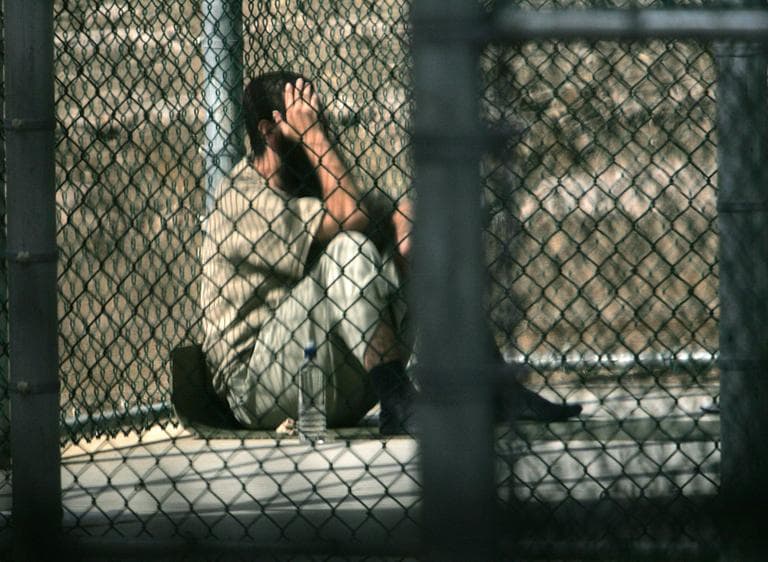Advertisement
Guantanamo Hunger Strikes And Ethics Of Force-Feeding
Resume
A U.S. military spokesman says there are still 100 Guantanamo Bay prisoners refusing to eat as of Wednesday. Lt. Col. Samuel House says 23 are being force-fed to prevent starvation.
House said the prison camps appeared calm a day earlier as word spread that Obama had said at a news conference that he would try to persuade Congress to end the restrictions that have prevented his administration from emptying the prison that now holds 166 men.
"None of them have had any sort of meaningful due process and most of them have been held for 11 years without seeing their families."
Carlos Warner, lawyer
Carlos Warner is a federal public defender who represents 11 of the prisoners at Guantanamo.
"None of my clients have been charged. None of them have pending charges. None of them have had any sort of meaningful due process and most of them have been held for 11 years without seeing their families," Warner told Here & Now's Robin Young.
Warner says he believes that more men are starving themselves than the government has acknowledged. He estimates at least 120 men are on hunger strikes, in addition to his clients. He also believes more than two dozen detainees are being force-fed.
"It's been described to me this way: First of all, the military uses a tube that is too large, and often the men are strapped down, but they don't find the right passage for the tube. It takes two or three entries. Once it passes the sinuses, the men's eyes begin to water. As it hits their throat, they have a hard time breathing because the tube is too wide, and they gag. As it hits their stomach, their first reaction is to vomit," Warner said.
Warner says he does not want to see his clients die, but he calls the force-feeding inhumane and a "clear violation of medical ethics."
Art Caplan, head of the division of bioethics at New York University's Langone Medical Center, says a hunger strike is a political statement, not equivalent to a suicide attempt.
"If you put it into that framework then ethically, any person - even a prisoner - can refuse medical intervention, as long as they're not a disease risk to other people," Caplan said.
- Should Guantanamo prisoners be allowed to starve themselves to death? Tell us on Facebook or in the comments.
The Associated Press contributed reporting to this article.
Guests:
- Carlos Warner, federal public defender who represents 11 of the prisoners at Guantanamo. He tweets @Carlos_Warner.
- Art Caplan, head of the division of bioethics at New York University's Langone Medical Center. He tweets @ArthurCaplan.
This segment aired on May 1, 2013.